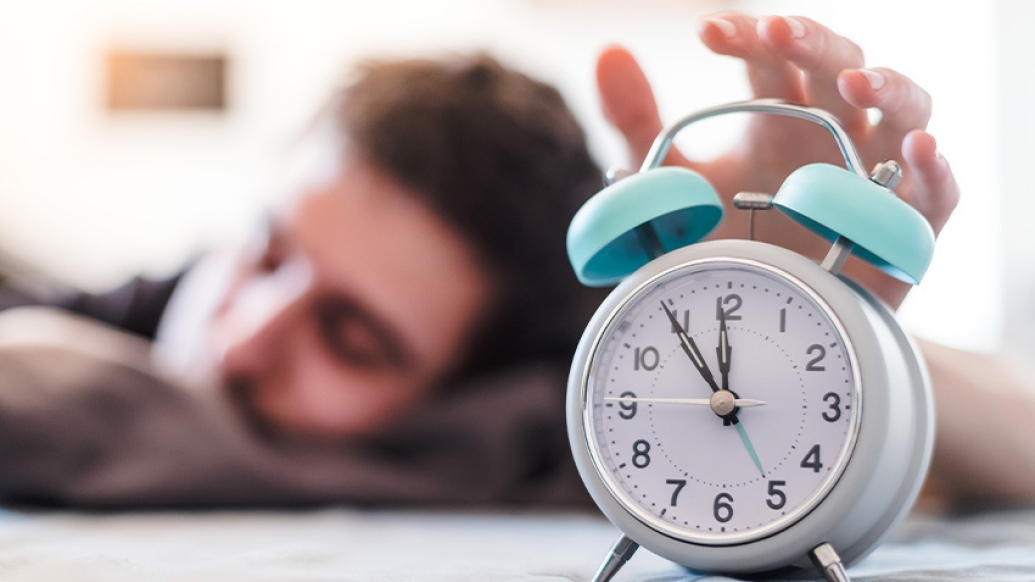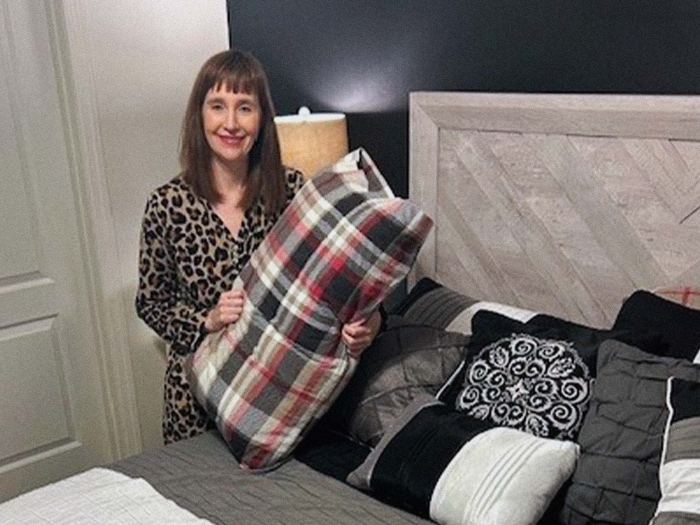A sleep neurologist explains the science.
9:00 AM
Author |

Springing forward doesn't just make for a sleepy Monday morning; it also affects your health and your safety.
That's why experts are calling for an end to the back-and-forth that confuses our bodies twice per year and instead establish permanent Standard Time. Anita Shelgikar, M.D., MHPE, co-authored a recent position statement from the American Academy of Sleep Medicine calling for an end to Daylight Saving Time.
Shelgikar, a professor of neurology who sees patients at Michigan Medicine's Sleep Disorders Centers, explains why she thinks the clocks should stop switching and stay at permanent Standard Time.
Why is springing forward bad for our health and safety?
Shelgikar: There are a multitude of potential negative consequences from the shift to Daylight Saving Time.
Like Podcasts? Add the Michigan Medicine News Break on iTunes, Google Podcast or anywhere you listen to podcasts.
Even one hour of a time shift can make it harder to wake up and fall asleep on a set schedule. Immediately following the "spring ahead" time shift, people can find it difficult to fall asleep at night and wake up in the morning. This can lead to less hours of sleep overall, and that sleep deprivation can pose safety risks, including a higher likelihood of motor vehicle accidents on days following the time shift.
There are individual health concerns, too: switching to Daylight Saving Time is associated with cardiovascular morbidity, a higher risk of a heart attack or stroke, and an increase in hospital admissions for irregular heartbeats, for example.
SEE ALSO: Why Daylight Saving Time Could Increase Your Heart Attack Risk
Light is the most powerful regulator of our internal clock, also known as our circadian rhythm, and some people may not even adjust to the time change after several months. When the clocks on the wall shift forward our exposure to morning sunlight in the morning is reduced, which makes it harder to wake up, and our exposure to evening light increases, which makes it harder to fall asleep. Chronic misalignment between the internal clock and occupational, family and social activities can be very disruptive.
Switching to Daylight Saving Time is associated with cardiovascular morbidity, a higher risk of a heart attack or stroke, and an increase in hospital admissions for irregular heartbeats.
Do you have a preference between making Daylight Saving Time permanent or keeping Standard Time permanent?
Shelgikar: There is growing support for the idea that we should not be switching clocks twice per year. There are proponents for establishment of either permanent Standard Time or permanent Daylight Savings Time.
The sleep medicine societies I'm part of are advocating for permanent Standard Time. That's because it's more aligned with our circadian rhythm, which needs light and dark cues from the sun.
With permanent Daylight Saving Time, on the other hand, the clock would be shifted an hour forward even in the winter, which would mean more time in the dark in the mornings. That's at odds with our intrinsic circadian rhythm.
What will it take to end Daylight Saving Time in the United States?
Shelgikar: Eliminating Daylight Saving Time nationwide would require an act of Congress; however, state-level legislation is possible (you may have seen that Arizona opts out, for example.)
SEE ALSO: Seeing the Light of an Improved Mood
Changing to permanent Standard Time will take some advocacy. We have to think about what industries might be affected and what other policy changes might be needed. It's a great opportunity for sleep specialists and sleep and circadian researchers to collaborate with policy makers to advocate for better sleep and better health.
Other countries are taking on Daylight Saving Time, too. The European parliament voted to end mandatory Daylight Saving Time, so now it's our turn!
Until policy changes happen, how should we deal with springing forward?
Shelgikar: If you're able to make small, incremental changes in your sleep and wake times for a few days leading up to the start of Daylight Saving Time, rather than making an abrupt change of a full hour, it can ease that transition.
And everyone should try to stick with the recommended behaviors that we know facilitate a healthy sleep-wake schedule. That includes things like dimming lights and avoiding electronics, or at least using a blue light filter, a couple of hours before bedtime; sticking to consistent sleep and wake times seven days a week; limiting caffeine in the afternoon and evening; and getting some exercise earlier in the day so you're ready to wind down by bedtime.

Explore a variety of healthcare news & stories by visiting the Health Lab home page for more articles.

Department of Communication at Michigan Medicine
Want top health & research news weekly? Sign up for Health Lab’s newsletters today!





